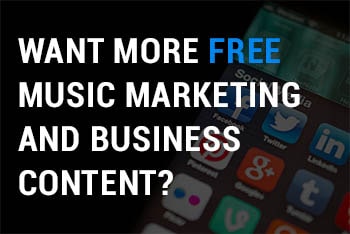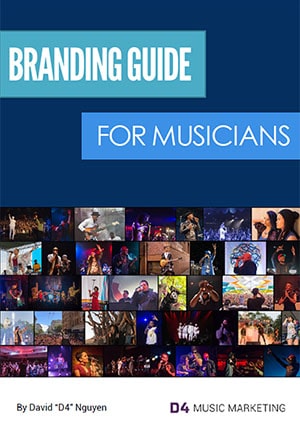
As a musician, the last thing you want to do is leave money on the table. So what can you do to make sure you’re getting all the money you’re owed from your music?
Many musicians may not realize this, but there’s a lot of music royalties floating out there waiting to be claimed by their rightful owners. Over 424 million dollars in mechanical royalties generated from digital service providers (DSPs) were left unclaimed due to the lack of data or having the incorrect information to match and pay out the rightful copyright owners.
Thankfully for artists, the Mechanical Licensing Collective (MLC) officially launched in January of 2021 to help address this issue. How does the MLC help exactly?
In this blog, I’ll go over what the MLC is and what you need to do to make sure you’re getting properly paid when DSPs stream your music.
In case you’re not familiar with music royalties and some of the basic lingo, I recommend checking out this blog first to cover all the basics. It’s a complicated and confusing topic that all musicians need to know.
What is the MLC?
The MLC is a nonprofit created as a result of the Music Modernization Act (MMA) that was signed into law in October 2018. As the name entails, this legislation helped “modernize” copyright laws in the United States for the streaming era so that songwriters and publishers are properly paid.
The problem in the past was that songwriters and music publishers had not been paid accurately and fully by digital streaming services due to poor matching and reporting practices.
Simply put, the Mechanical Licensing Collective (MLC) helps songwriters, music publishers and rights holders get paid whenever their musical works are streamed online or downloaded on platforms like Spotify and Apple Music.
If you distribute your music through aggregators like DistroKid and CD Baby, you may have noticed you’ve received mechanical royalties directly from them. This is for the use of your sound recording, but not the mechanical royalties for the musical composition that the sound recording is based on. The MLC specifically collects and distributes mechanical royalties whenever a musical composition is reproduced digitally.
How does the MLC work?
There are 3 general things the MLC does that musicians should know.
Blanket Licensing
The MLC helps to streamline the music-licensing process by providing a blanket license for streaming services to legally stream songs or sell downloads for their customers on the platform. This blanket license covers mechanical rights in any songs not covered by a DSP’s direct deals with music publishers.
Prior to the launch of the MLC, the licensing process in the United States was not efficient and was done on a song-by-song basis under a compulsory license. Unfortunately, this meant DSPs were not being held accountable to properly pay out songwriters and publishers.
The MLC is allowed to issue blanket licenses to DSPs and it is their job to make sure the right people are paid based on usage reports they receive from DSPs.
Matching Usage Reports
Every month, the DSPs provide the MLC with usage reports of the sound recordings streamed or downloaded on their platform and the mechanical royalties to go with it. The MLC’s job is to match up that data in their database to pay the copyright holders of the musical compositions in those sound recordings accurately.
If MLC does not find a match, it will be put into an unmatched usage database where you can search and claim if it is yours.
Publicly Accessible Databases
The MLC has two publicly accessible databases so you can search. One allows you to see who has copyright ownership of musical compositions.
The other allows you to see unmatched musical works that never got paid out due to the lack of correct data.
What doesn’t the MLC handle?
The MLC focuses on tracking and distributing mechanical royalties when musical works are reproduced under their digital audio blanket license. They work with DSPs to make sure songwriters, publishers and right holders are paid out accurately.
Here’s a list of what the MLC does NOT cover:
- Physical Goods: The mechanical licensing or royalties associated with physical goods like CDs, vinyl, cassette tapes.
- Ringtones
- Cover Songs: The MLC does not handle the mechanical licenses required to do covers. The Harry Fox Agency (HFA) does.
- Audio Visual Media: Musical works used in audiovisual media, like video, are not handled by the MLC. They only track, collect and distribute royalties associated with audio-only digital usage. This means any audio-visual usage on platforms like YouTube, Facebook, Snapchat, TikTok and Instagram is not covered by the mechanical blanket license.
- Usage Outside the United States: The MLC does not collect royalties from streams and downloads of musical works outside the U.S.
How is it different from a PRO?
A performing rights organization (PRO), like BMI, ASCAP and SESAC, is similar to the MLC in that they both serve songwriters and publishers (the copyright holders of musical compositions). The main difference is that PROs focus only on public performance royalties while the MLC focuses on mechanical royalties.
For example, when a song is streamed on Spotify, there are two royalties that are paid out to songwriters and publishers. One is the performance royalty, which goes to a PRO to handle and payout rights holders. The other is the mechanical royalty, which the MLC is responsible for doing the same.
Both organizations issue and manage blanket licenses to make it easier for business entities to use copyrighted music without having to get individual licenses for every song they play in public or stream/download on a platform.
To be clear, the MLC does not replace PROs or SoundExchange.
What do I need to do to get paid from the MLC?
If you use a publishing administrator like SongTrust, you don’t need to become a member of the MLC as they will take care of all of it. When you register with them, they will send your data to the MLC and work with them to make sure you receive your mechanical royalties.
If you work with a music publisher, they will be the ones to register with the MLC to become a member so you don’t need to do anything in this instance either.
If you are a self-administrated songwriter, you will need to become a member of the MLC. This means you don’t work with a publishing administrator or music publisher.
The MLC only collects mechanical royalties generated with the United States, but you don’t have to live in the U.S. or be an American citizen to collect that money. If you live outside the U.S. and you release music that gets distributed to DSPs like Apple Music, the MLC will still collect that money for you. You will need to be registered with an Ex-US Collective Management Organizations (CMO) or register with the MLC directly to collect.
Now, it’s possible that you have a publishing administrator or music publisher, but you have songs that are not registered with them. If this is the case, you can register with MLC for the works not covered by them. Make sure all of your work is in the MLC’s database so you’re collecting all the royalties owed to you.
For example, you use CD Baby Pro service to put out a single. They will automatically register your work with a publishing admin to collect all the songwriting royalties associated with that song. The publishing admin CD Baby uses (SongTrust) will collect mechanical royalties directly from the MLC on your behalf.
If you decide to use a service like DistroKid to distribute your next single, that song will not automatically be registered with the MLC because they will not register your song with a publishing admin to collect those royalties. In this case, you would then have to register that song to MLC as a self-administered songwriter.
If you’re ever unsure about what songs are registered, use the MLC’s public search database. The MLC is fully transparent so you can log into their portal to see all of their data. It is free, but you do need to become a member.
Additional Resources
https://blog.songtrust.com/what-is-the-music-modernization-act







